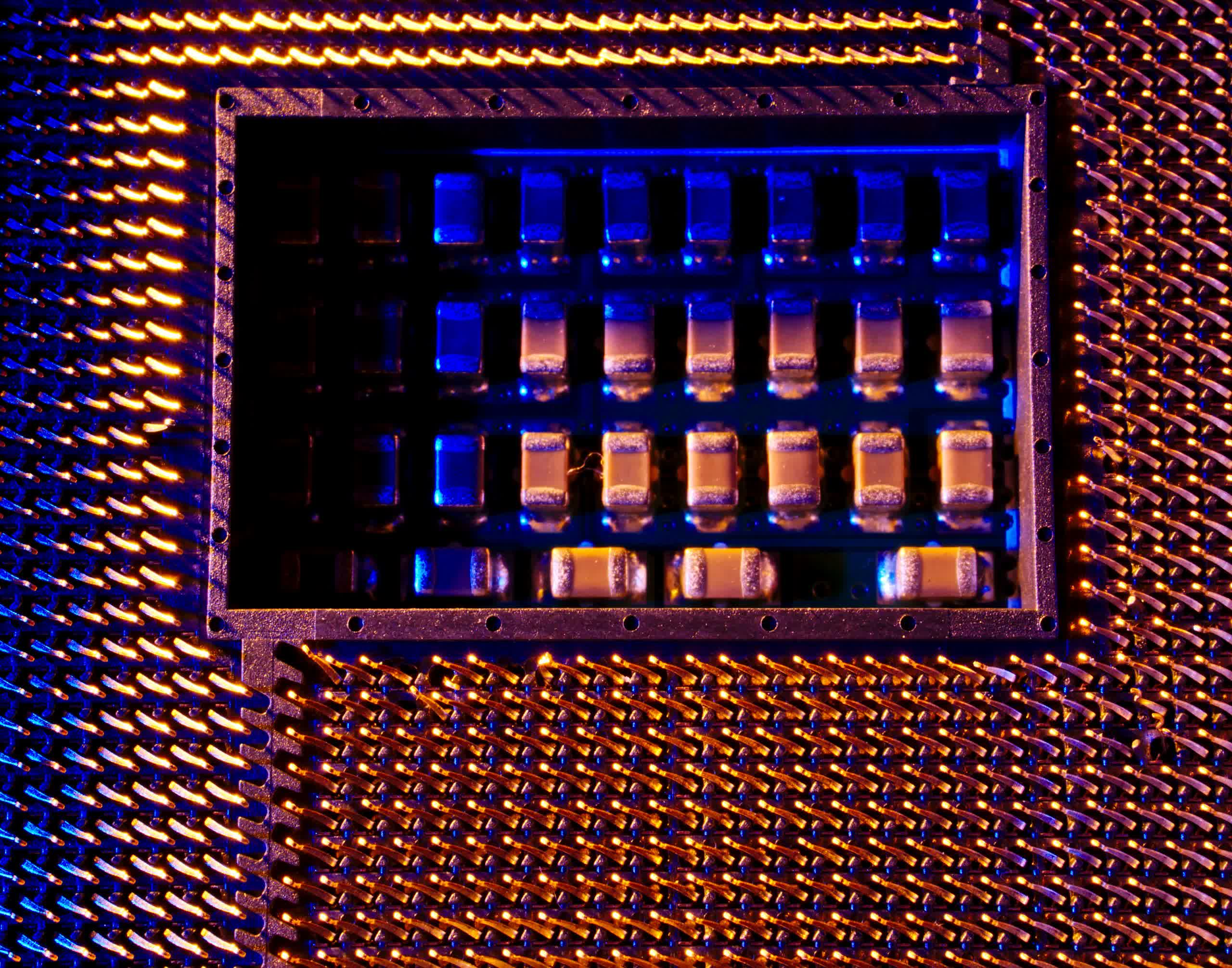In brief: Intel's 4th generation Xeon data center processors are finally approaching public release three years after the company initially announced them. More hints about arguably the new series' most controversial feature have also emerged but important questions remain.
Intel will hold a launch event for its next-generation Xeon data center CPUs on January 10. Around the same time as Intel's confirmation this week, a Linux kernel update has shed some light on a planned system for à la carte processor hardware features.
Since Intel first announced Sapphire Rapids in 2019, leaks and software updates have revealed much about the upcoming CPU line. It will run on 56 cores and 112 threads with a maximum TDP of 360 watts. BIOS information suggests the TDP could reach as high as 764W to accommodate things like AVX-512 workloads. Some models will include 64GB of in-package HBM2e memory functioning as an L4 cache.
Mark your calendars. "️ "...
--- Intel News (@intelnews) November 1, 2022
New data center launch event coming January 10th, which will include 4th Gen Intel #XeonScalable processors.
Learn more about the momentum that's building and the volume ramp underway. https://t.co/NiB8IKEQvH
Another unique detail is that Intel plans to sell some Xeon processors at lower prices, locking some hardware features behind paid software gates. Theoretically, Intel could offer the option as a cheaper alternative to upgrading the CPU itself.
So far, Intel only appears to be planning to implement the idea on Linux, and Linux software updates are the primary source for early information about it. Referred to as "Intel Software Defined Silicon" in patch notes from last September, a new Linux kernel update renamed the feature "Intel On Demand." Otherwise, Intel still describes it as a system where users purchase authentication certificates to unlock hardware features.
The company hasn't said which hardware features it might lock behind software licenses. However, one Intel On Demand feature is a "meter certificate" that checks usage data for purchased hardware functions. It could be a tool to help users gauge how much they're getting for their money from each authentication certificate.
Sapphire Rapids will compete with AMD's upcoming "Genoa" series of Epyc processors. The company will hold an event to fully reveal the series on November 10 at 1 p.m. Eastern. We know it features chiplets with up to 96 cores, 192 threads, and a 360W TDP. Genoa is based on the same Zen 4 CPU architecture as the Ryzen 7000 processors AMD recently launched, as well as TSMC's 5nm node.
